Instant Masterpieces: 30 Movies That Captivated Audiences in the First 10 Minutes
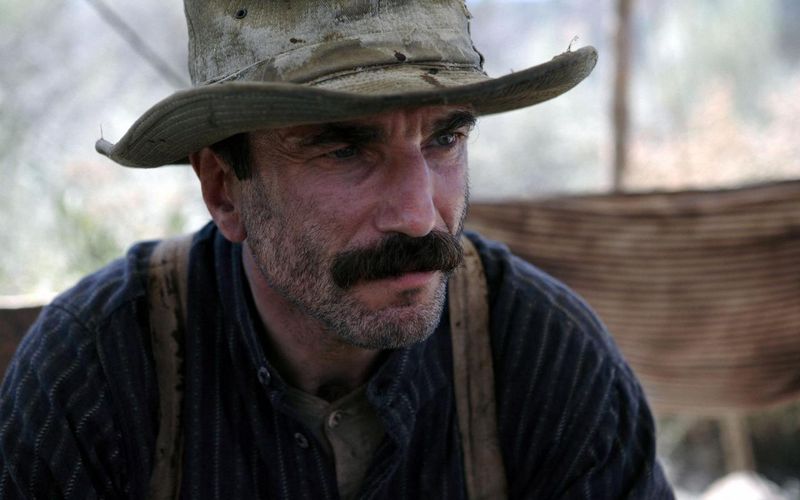
Every once in a while, a movie doesn’t need time to convince you it’s brilliant—it announces itself right away. The lighting, the score, the tension, the dialogue… everything clicks before you’ve even finished your popcorn. These are the films that make you lean forward, whisper “oh wow,” and realize you’re about to witness something special.
1. The Godfather (1972)
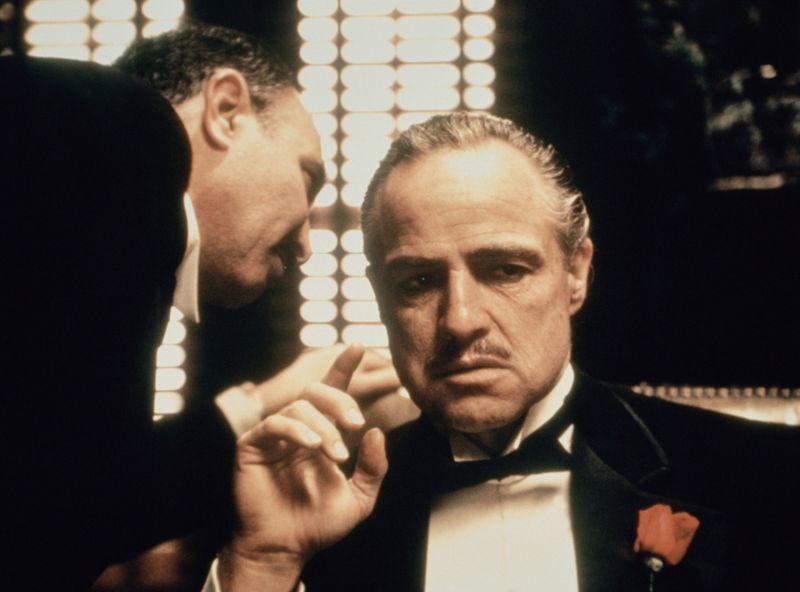
Before the first gunshot or whispered threat, Coppola sets the tone for what power really looks like. The wedding scene isn’t about celebration—it’s about hierarchy. While sunlight drenches the festivities outside, the Don sits in shadow, granting favors like a benevolent king.
That contrast—warmth versus control—is the film’s genius in miniature. We immediately understand how this world operates: loyalty is currency, and respect is survival. Even the smallest gestures carry consequences.
By the time you hear “I believe in America,” you know you’re not just watching a mob movie—you’re stepping into a cinematic world that will define an entire genre. The first 10 minutes make you feel like an insider in a dangerous, intoxicating family you can’t look away from.
2. Saving Private Ryan (1998)
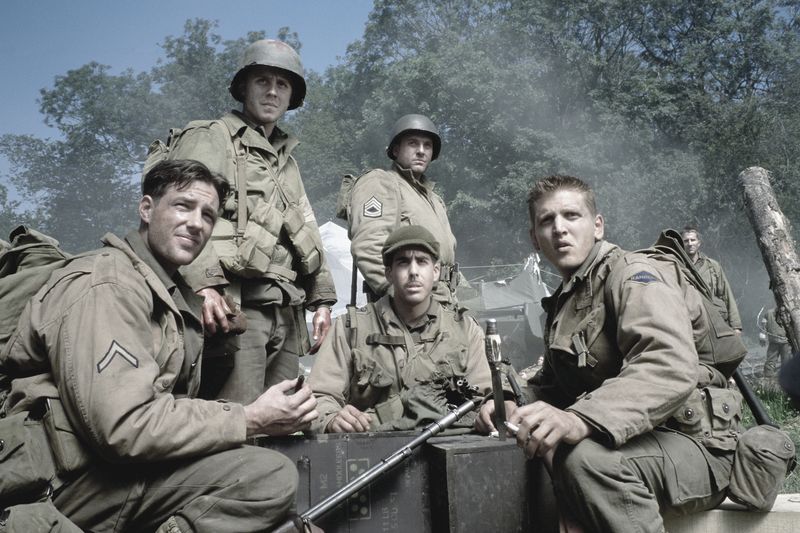
The opening scene doesn’t introduce characters—it throws you into chaos. Spielberg’s Omaha Beach sequence is less of a setup and more of a sensory assault. You can almost feel the sand, the water, and the panic.
There’s no need for exposition; you feel everything through the soldiers’ terror. The shaky camera work, the muffled explosions, and the ringing in your ears make it the most realistic war sequence ever filmed.
By the time Tom Hanks’ Captain Miller catches his breath behind a steel barrier, you already know this is no Hollywood war movie. It’s raw, unflinching, and heartbreakingly human. The first ten minutes alone are a masterclass in directing—and emotional endurance.
3. The Dark Knight (2008)
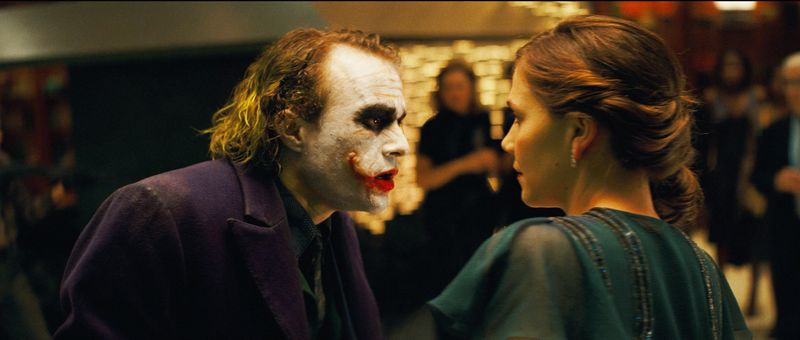
It starts like a heist movie but plays out like a chess game. Nolan wastes no time dropping us into Gotham’s criminal underworld with masks, tension, and that slow Hans Zimmer pulse that feels like a ticking bomb.
Each robber thinks they’re part of a brilliant plan—until they’re not. The Joker reveals himself not through dialogue, but through chaos and strategy. By the time he pulls off his mask and says, “Whatever doesn’t kill you simply makes you stranger,” you’re hooked.
It’s more than a crime scene—it’s a manifesto. In ten minutes, Nolan redefines the superhero genre and announces The Joker not as a villain, but as an unstoppable force of disorder. You already know you’re watching something iconic.
4. Inglourious Basterds (2009)
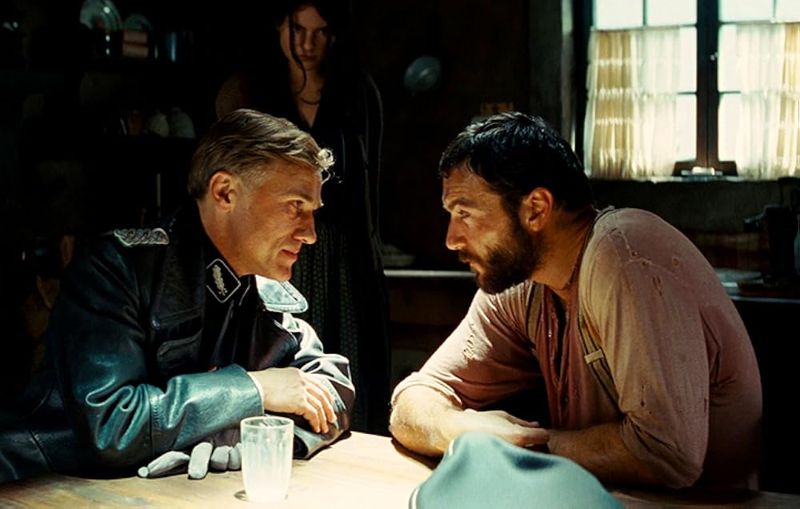
Few openings are as nerve-wracking as the farmhouse scene. Tarantino turns a simple conversation into a symphony of dread. The pacing is slow, the smiles are polite, and the tension is unbearable.
Every word from Hans Landa drips with menace hidden beneath charm. You don’t see violence—you anticipate it, which is far worse. When he finally gestures for the soldiers to open fire, the release is both shocking and inevitable.
By the time the scene ends, you’re breathless. Tarantino proves he doesn’t need explosions to make your pulse race—just words, silence, and a glass of milk. It’s one of the best-written openings in film history, and you know you’re in the hands of a master.
5. Pulp Fiction (1994)
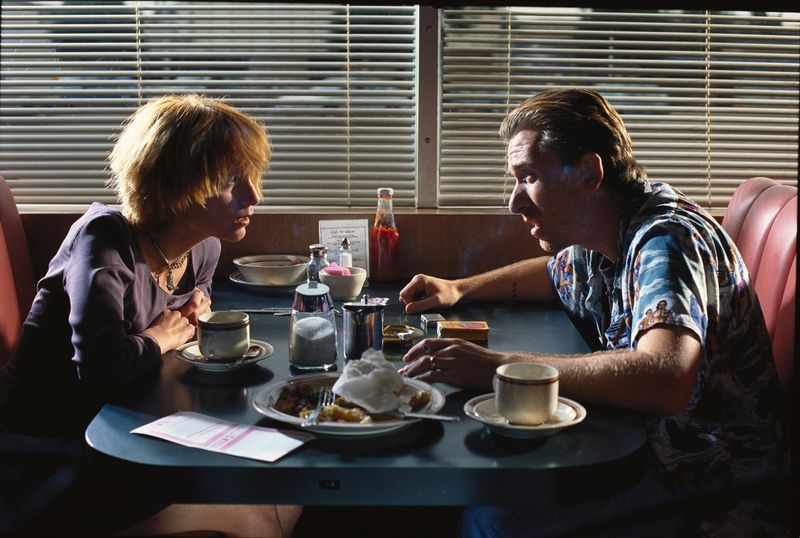
Two people sit in a diner, chatting about robbing liquor stores. The camera lingers, the dialogue flows, and you’re instantly drawn in. You don’t even realize Tarantino has trapped you until Honey Bunny leaps onto the table and screams, “Any of you pricks move!”
That shift—from casual banter to total chaos—is pure Tarantino magic. He takes the mundane and makes it electric, the ordinary and makes it cinematic. The rhythm of the dialogue is as important as the action itself.
By the time the title card slams across the screen to the tune of surf rock, you know you’ve entered a universe where coolness, danger, and dark humor coexist perfectly. It’s the moment modern cinema got a new pulse.
6. Goodfellas (1990)
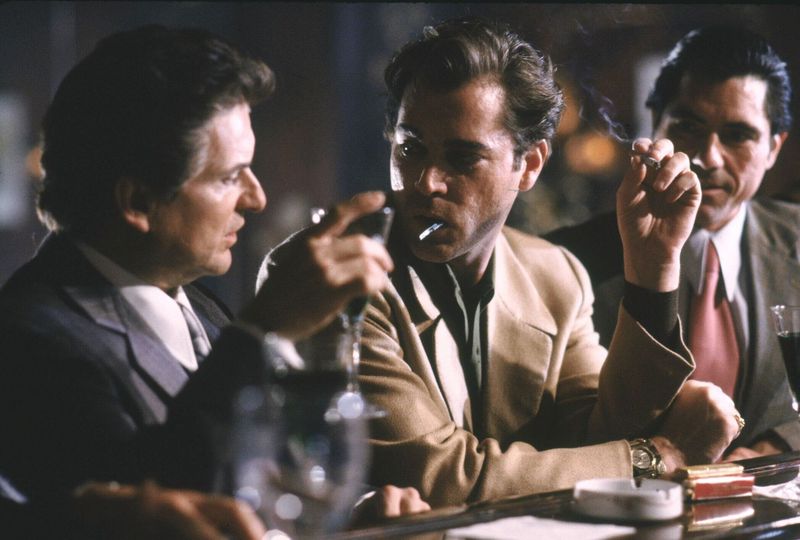
You don’t need to see the entire movie to understand Scorsese’s brilliance—it’s there in the opening line: “As far back as I can remember, I always wanted to be a gangster.” Right then, you know you’re not watching a crime movie; you’re watching a confession.
The car trunk scene that follows is pure adrenaline. There’s no context—just three men, a body, and a sense of cold efficiency that defines the mafia world. The energy, the editing, the music—it’s cinematic perfection.
By the time Tony Bennett’s “Rags to Riches” kicks in, you’ve been seduced. The rhythm, the swagger, the dark humor—it all hits instantly. Scorsese doesn’t ease you into Henry Hill’s life; he throws you into it and dares you to look away.
7. The Social Network (2010)
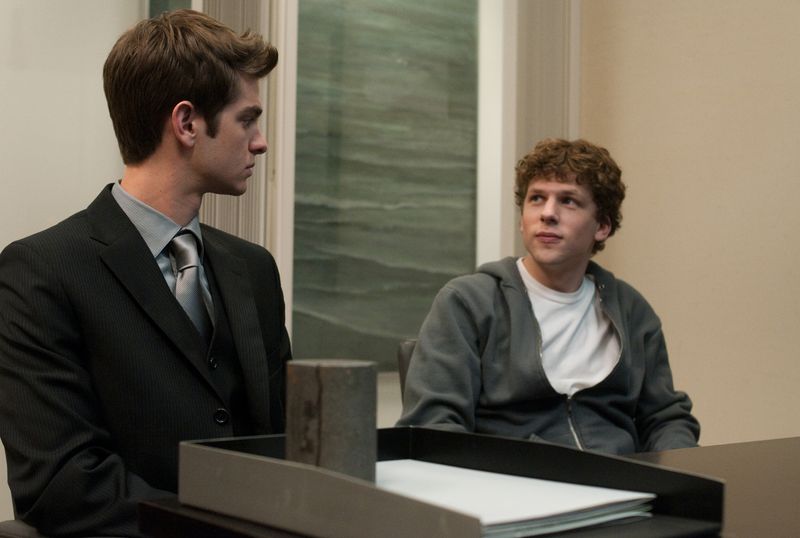
It starts with a breakup, but not just any breakup. Aaron Sorkin’s dialogue fires like a verbal tennis match—fast, funny, brutal. Mark Zuckerberg’s need to win every argument is both fascinating and exhausting, and it tells you everything about him.
Fincher’s directing turns that Harvard bar scene into a psychological portrait. The lighting, the editing, the tension—it feels cold and analytical, just like the mind we’re about to follow.
When the credits roll over Trent Reznor’s haunting score, you realize something rare: you just watched a tech biopic start like a thriller. The movie doesn’t wait to be profound—it’s electric from minute one, and it makes coding feel like combat.
8. The Shawshank Redemption (1994)
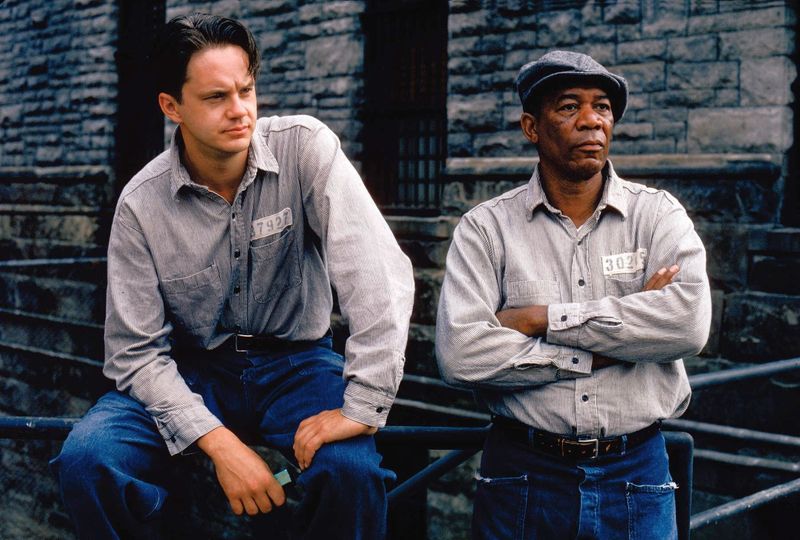
Few openings feel so heavy with unspoken emotion. A man sits in his car, drunk, armed, and devastated. The night air feels thick with regret. Without a word of dialogue, we sense his entire world falling apart.
Then, the courtroom. The calm tone, the unflinching camera—everything about it says this movie isn’t just about guilt or innocence. It’s about fate, justice, and how life can turn in an instant.
By the time Andy Dufresne is sent to Shawshank Prison, you already care about him. You don’t know his story yet, but you know his soul. The first ten minutes promise a slow burn about hope—and it delivers one of cinema’s most powerful payoffs.
9. There Will Be Blood (2007)
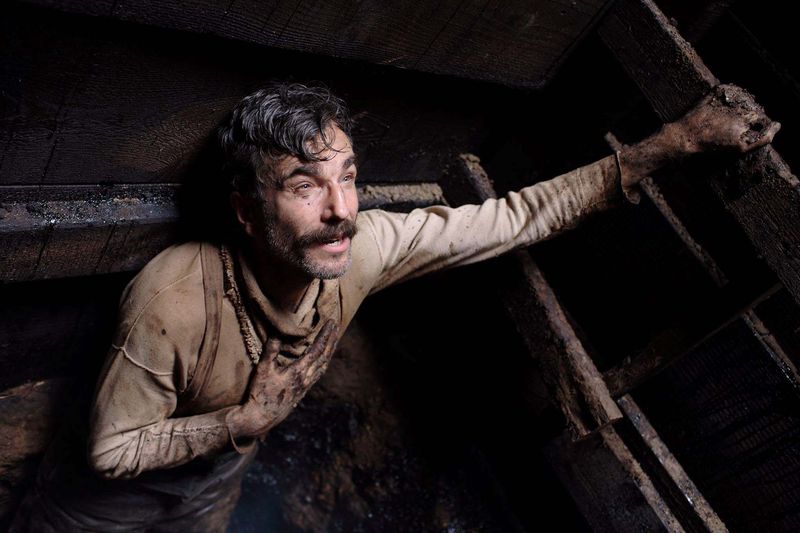
Daniel Day-Lewis doesn’t need dialogue to command attention. For the first ten minutes, it’s just him, a pickaxe, and silence. Yet you’re completely glued to the screen.
The sound design—metal scraping, tools echoing in the mine—is hypnotic. Every strike feels like ambition incarnate. You can almost smell the oil, taste the dirt, and feel the weight of obsession forming before your eyes.
By the time he emerges from the earth, battered but triumphant, you understand who Daniel Plainview is: a man who’d crawl through fire for success. It’s raw, patient, and terrifyingly magnetic. PTA doesn’t introduce a character—he births a force of nature.
10. Gladiator (2000)
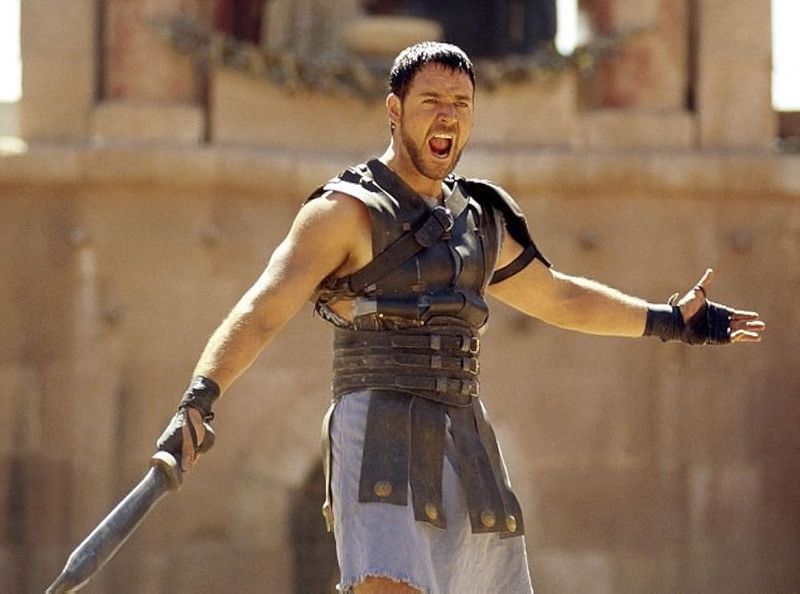
The film doesn’t waste a second before plunging you into war. Smoke, armor, and strategy fill the frame as Maximus prepares his troops for battle. The atmosphere is so tactile you can feel the cold Roman air.
When he delivers that “What we do in life echoes in eternity” speech, it’s not just inspiring—it’s mythic. You sense honor, exhaustion, and purpose all colliding in one perfect moment.
Then the battle begins. Mud, fire, chaos—Ridley Scott crafts it like a painting in motion. By the time the dust settles, you don’t need to be told Maximus is a legend. You’ve already witnessed it. Ten minutes in, and you know you’re watching something destined for cinematic immortality.
11. Parasite (2019)
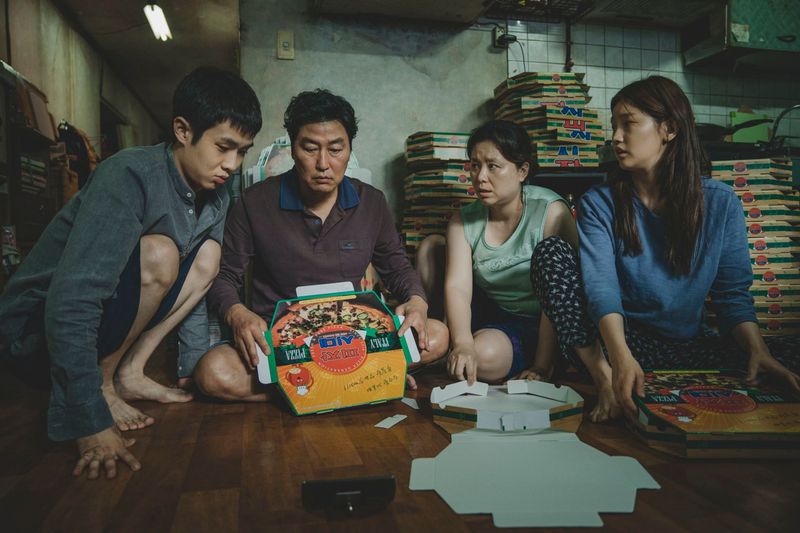
A cluttered basement apartment, socks drying on a ceiling light, and the faint smell of desperation—Bong Joon-ho sets the stage without saying a word. You instantly understand the Kim family’s situation: clever, capable, and boxed in by circumstance.
There’s humor, too. The Wi-Fi hunt scene turns poverty into a kind of art form. You’re laughing, but uncomfortably so, because the satire cuts deep. Every shot feels like a mirror held up to class inequality.
By the time the pizza box scheme starts, you already sense that this is more than a quirky family story. It’s a ticking time bomb disguised as comedy. Those first ten minutes whisper what the rest of the film screams—there’s a system, and someone’s always on the bottom.
12. Fight Club (1999)
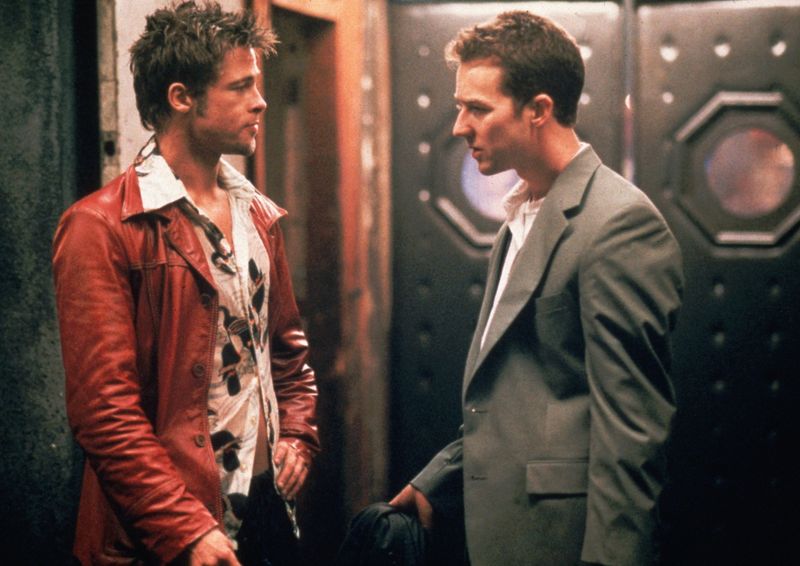
The movie opens with chaos inside a man’s mind—literally. A gun barrel in his mouth, a voiceover full of nihilism, and visuals that feel like adrenaline and insomnia blended together.
Then, we rewind to fluorescent offices, IKEA catalogs, and corporate numbness. Edward Norton’s narrator is both pathetic and profound, the ultimate symbol of late-’90s burnout. The tone is darkly comic but painfully real.
Within ten minutes, you feel the film’s mission: to punch modern consumerism right in the face. It’s clever, unsettling, and weirdly relatable. By the time Tyler Durden enters the frame (or at least the story), you’re already infected with the movie’s madness.
13. Get Out (2017)
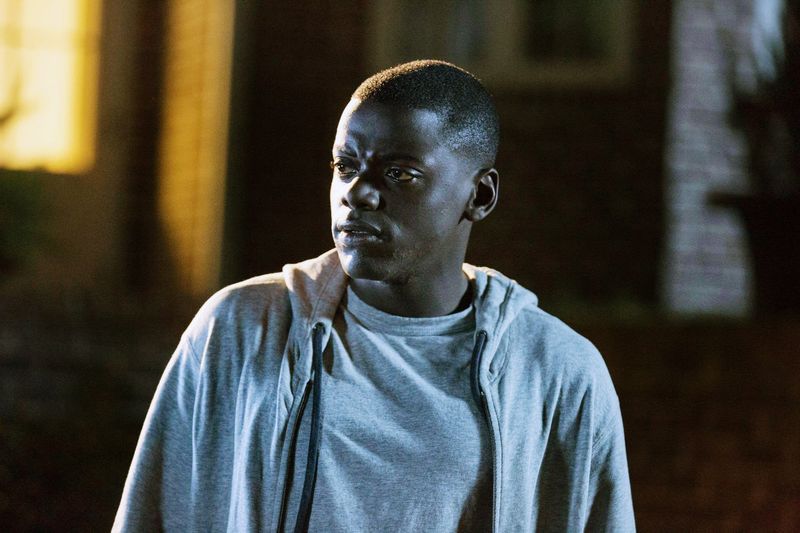
It begins like a normal night in suburbia—until it doesn’t. A Black man walking alone in a wealthy neighborhood, lost and uneasy, instantly sets the tension. Peele doesn’t need monsters; he uses America’s most familiar setting to create fear.
The camera lingers, the music creeps in, and a white car slowly stalks him. It’s quiet terror, built from something uncomfortably real. The abduction is shocking, but the dread before it is what sticks.
When the title “Get Out” slams onto the screen, you already know this isn’t just a horror movie—it’s social commentary with teeth. In ten minutes, Jordan Peele announces himself as both filmmaker and cultural mirror, redefining what “scary” can mean.
14. Jaws (1975)
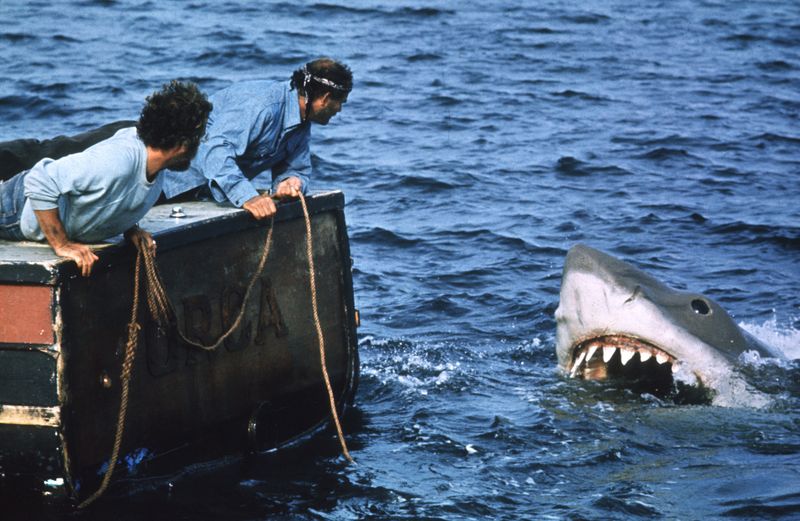
Few films have ever done more with less. A late-night swim, moonlit waves, and that two-note score—Spielberg’s shark is invisible, but the fear is instant.
The camera becomes the monster. Each underwater shot feels like a heartbeat you can’t control. When the first attack hits, it’s not just terror—it’s the birth of the modern blockbuster. You’ve just seen the power of suggestion turn into panic.
Ten minutes in, and you’re already hooked (pun intended). You don’t need to see the shark because your imagination has already done the work. Spielberg knew that fear isn’t about what’s shown—it’s about what’s waiting below.
15. The Matrix (1999)
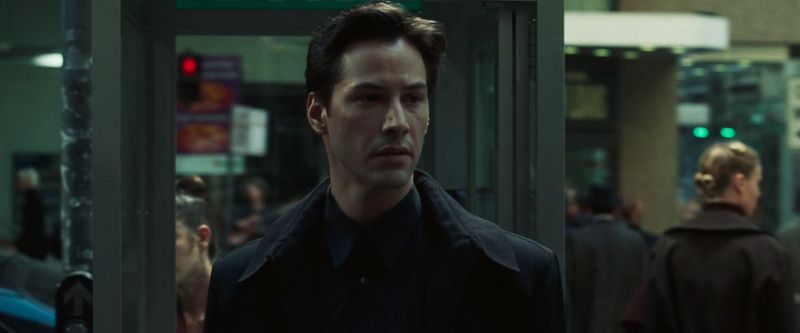
A woman in black runs across rooftops, dodging bullets in slow motion, and suddenly the laws of physics don’t matter anymore. That’s how The Matrix announces itself—as something the world has never seen.
The green tint, the trench coats, the phones—it’s instantly iconic. You can feel the Wachowskis’ precision in every frame, as if they’re daring you to question your own reality.
When Trinity leaps across the buildings and disappears into the night, you’re left speechless. Ten minutes in, and you already know you’re watching a cinematic revolution. The rules of action filmmaking just got rewritten, and your mind’s already halfway out of the Matrix.
16. The Lion King (1994)
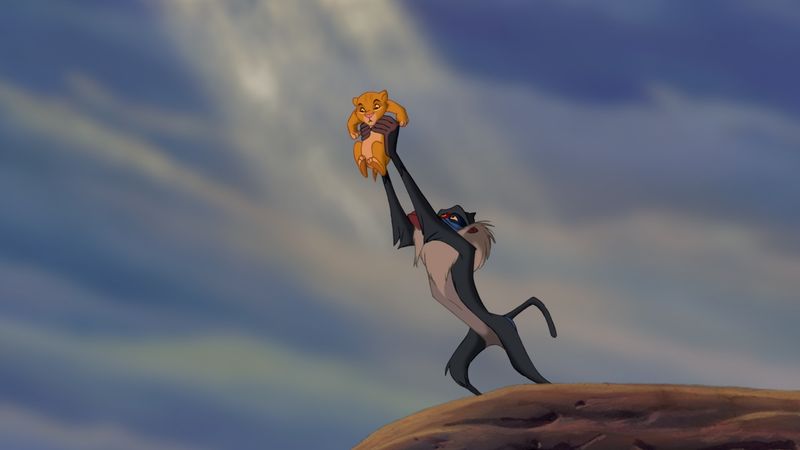
Before a single line of dialogue, you’re already covered in chills. “Circle of Life” bursts from the speakers, and the African sunrise fills the screen like something sacred. It’s not an opening—it’s a declaration of greatness.
Every animal bows as the music swells, and Rafiki holds up baby Simba with the kind of reverence usually reserved for gods. You can practically feel the goosebumps ripple across generations.
By the time the title slams across the screen, you already know this isn’t just another Disney movie. It’s a cinematic event, blending hand-drawn beauty, soaring music, and emotion in perfect harmony. Ten minutes in, and you’re witnessing Disney’s most powerful moment in history.
17. No Country for Old Men (2007)
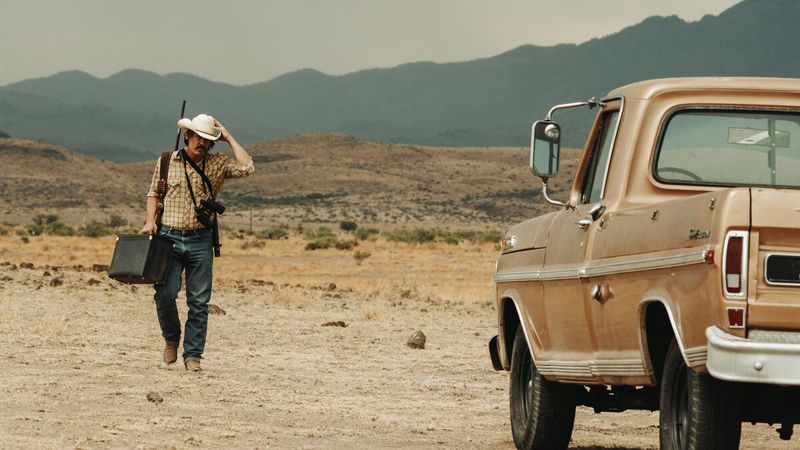
A quiet desert, a haunting voiceover, and a man being arrested in silence—that’s all it takes for the Coen brothers to set an unforgettable tone. You feel the dread before you even know what’s happening.
Then comes Anton Chigurh. His introduction isn’t flashy—it’s methodical, terrifying, and weirdly calm. The way he uses that captive bolt pistol is as chilling as it is unforgettable.
Within minutes, you know this is a story about unstoppable evil colliding with fading morality. There’s no music to comfort you, no warmth to hold onto. Just dust, fate, and death walking among us. It’s perfection through stillness, and you can’t look away.
18. La La Land (2016)
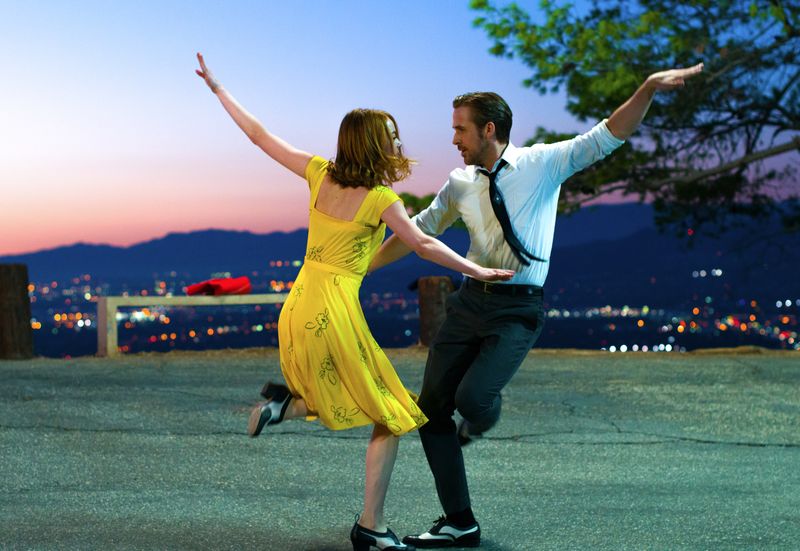
A Los Angeles traffic jam—annoying in real life, but pure magic on screen. Drivers burst out of their cars, turning frustration into choreography. It’s color, sound, and optimism exploding in unison.
Chazelle’s camera never stops moving, capturing a sense of joy that feels impossible not to catch. The energy, the music, the sheer audacity of opening your movie with a six-minute dance on a freeway—it’s cinematic joy incarnate.
By the time the song ends and the honking resumes, you’re smiling like a kid at the movies again. You know you’re about to watch something made by people who love film. It’s the kind of opening that reminds you why you fell in love with movies in the first place.
19. Schindler’s List (1993)
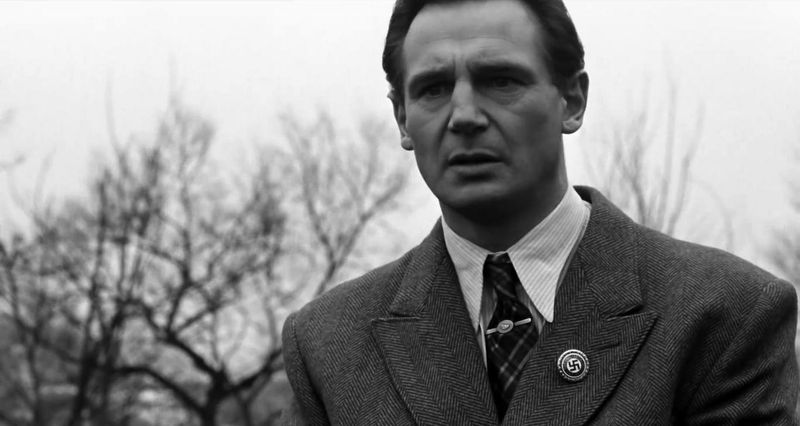
The first image you see is a candle burning, and the sound is a prayer. Then, black and white takes over, swallowing color and hope in one slow fade. Spielberg doesn’t ease you in—he immerses you in tragedy and history immediately.
The tone is reverent but unflinching. We’re introduced to Oskar Schindler not as a hero, but as a charming opportunist working the system. Every frame feels like a document of something painfully real.
Ten minutes in, you realize this isn’t just a war film—it’s a memorial in motion. The absence of color becomes its own language, speaking louder than words ever could. It’s filmmaking as remembrance, and it’s unforgettable.
20. The Silence of the Lambs (1991)
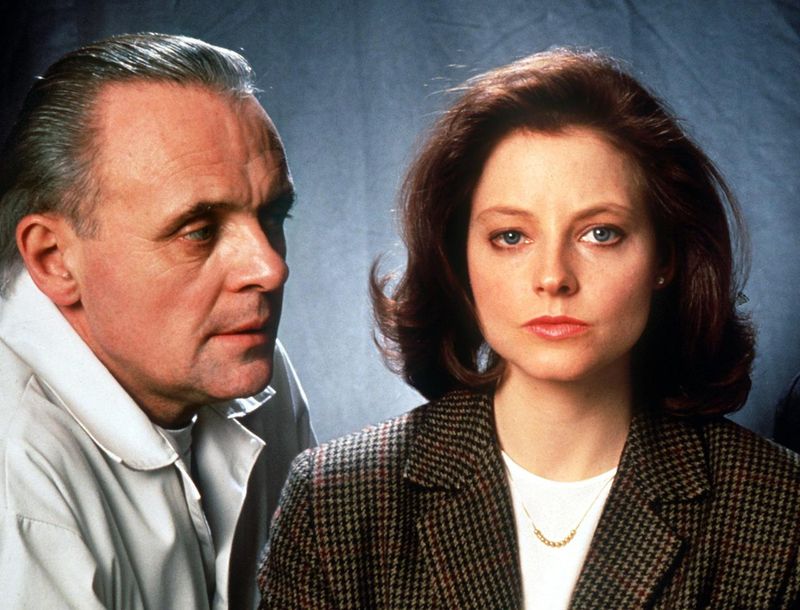
The first thing you notice is the stillness. Clarice Starling runs through the misty woods, determined and alone. The camera tracks her like prey—but you quickly realize she’s the hunter.
That training sequence tells you everything: she’s small in stature, massive in willpower. The silence, the cold light, and the sweat on her face create instant empathy. You root for her before you even know her story.
By the time she steps into the FBI elevator, surrounded by taller men in red shirts, the visual metaphor is perfect. She’s in over her head but undeterred. Ten minutes in, and you’ve already met one of cinema’s most quietly powerful heroes.
21. The Sixth Sense (1999)
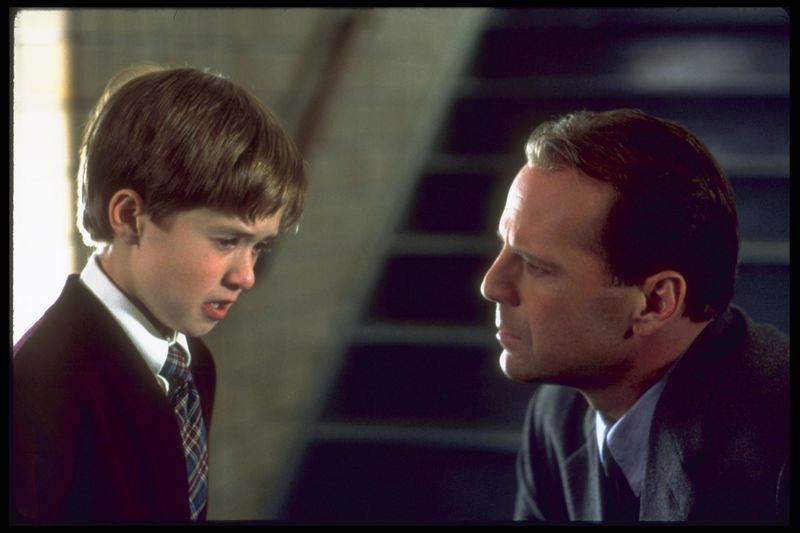
It begins not with fear, but with pride. Dr. Malcolm Crowe and his wife share a celebratory night, their happiness framed in warm, golden tones. Then, a broken man steps into their home, and everything changes.
The tone shifts instantly—from comfort to dread. The intruder’s pain, the doctor’s confusion, and the sudden violence create one of the most unsettling transitions in modern cinema. You don’t need to know the twist to feel the tragedy.
By the time the gunshot echoes, the air feels haunted. You don’t realize it yet, but Shyamalan has already planted the seed for one of the greatest endings in film history. The first ten minutes show not horror, but humanity—and that’s what makes it unforgettable.
22. Once Upon a Time in the West (1968)
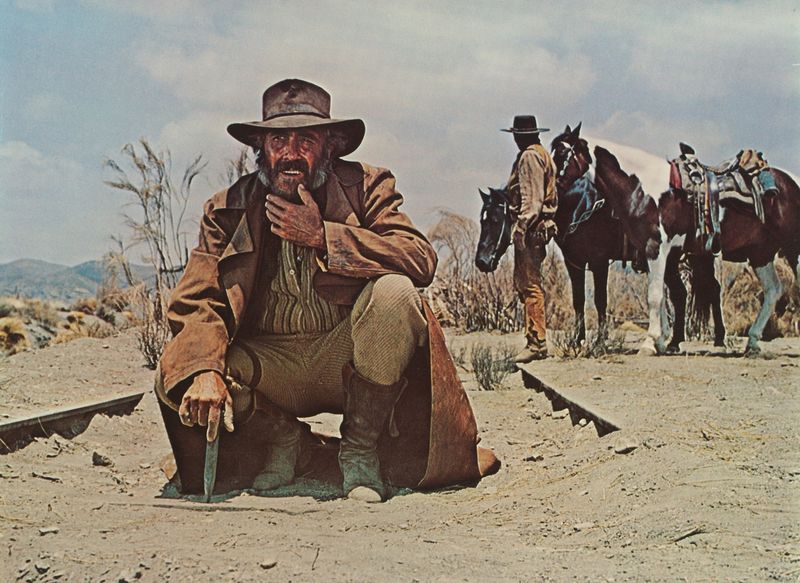
Silence has never sounded so intense. Three gunmen wait at a lonely train station, their faces sunburned and still, their movements painfully slow. Leone stretches every second until it becomes unbearable.
You hear creaking wood, buzzing flies, dripping water—every sound amplified by emptiness. It’s not just an opening; it’s a masterclass in suspense. The world feels endless, but the focus is razor-sharp.
When the train finally arrives, and Charles Bronson’s harmonica cuts through the air, the scene becomes mythical. In ten minutes, Leone teaches you patience, tension, and cinematic poetry—all without a single line of dialogue.
23. The Revenant (2015)
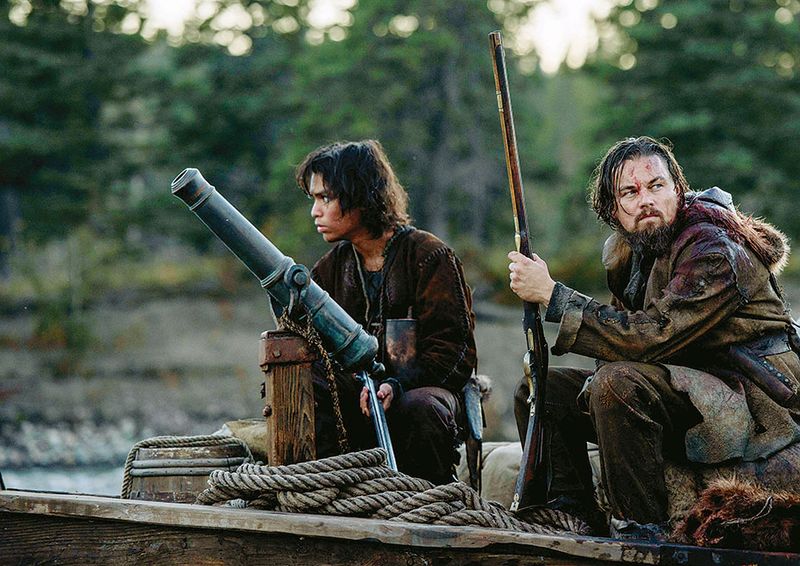
You can almost feel the cold air bite your skin. Snow crunches, arrows fly, and the camera glides through chaos like a ghost. Iñárritu’s one-take ambush sequence doesn’t introduce characters—it drops you into survival mode.
The sound design is overwhelming: screams, horses, wind, fire—it’s pure sensory overload. The violence isn’t stylized; it’s primal. You’re not watching a movie—you’re enduring it alongside them.
By the time Hugh Glass crawls through the mud, bloodied and desperate, you know you’re watching a director at the height of his craft. Ten minutes in, and you’ve already been through more emotion than most films deliver in two hours.
24. American Beauty (1999)
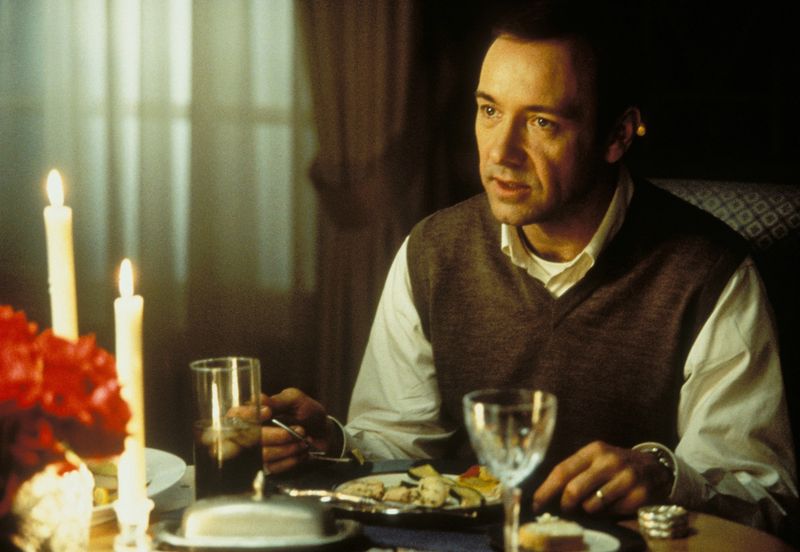
The opening narration feels almost smug: “In less than a year, I’ll be dead.” It’s darkly funny, brutally honest, and immediately hypnotic. You know this isn’t going to be a normal suburban story.
Kevin Spacey’s Lester Burnham introduces us to a world of plastic smiles and quiet misery. The tone is sarcastic yet deeply sad—the kind of satire that hits too close to home. You laugh, but uneasily.
Within ten minutes, Mendes captures the emptiness of the American dream better than most films do in their entirety. It’s strange, uncomfortable, and weirdly liberating—like peeling back a perfect family photo to find chaos underneath.
25. Whiplash (2014)
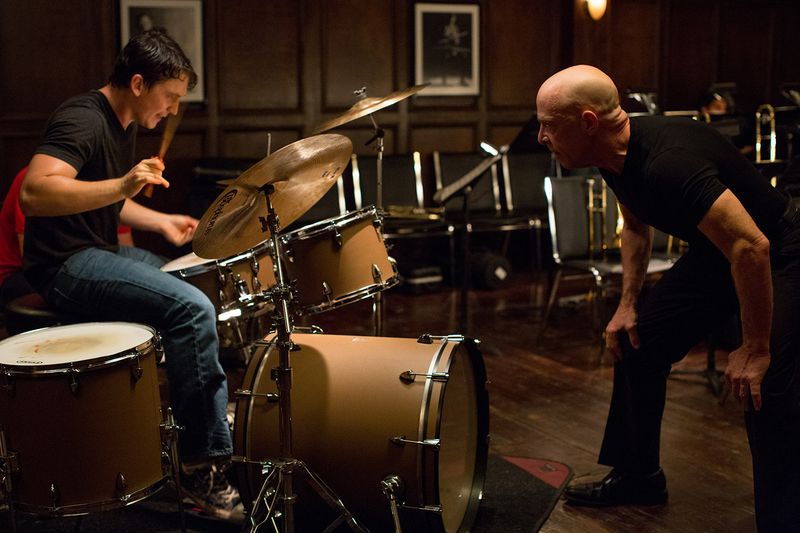
A single drumbeat echoes in a dim rehearsal room. It’s not music yet—it’s obsession. Then, a door creaks open, and J.K. Simmons walks in, commanding total silence with just his presence.
You can feel the tension tighten. Andrew wants greatness so badly it’s painful, and Fletcher can smell that desperation. The dialogue is short, sharp, and dripping with power dynamics.
In ten minutes, you already understand the movie’s soul: perfection isn’t beautiful—it’s brutal. By the time Fletcher snaps, “Were you rushing or were you dragging?”, you’re hooked. It’s not just a music film—it’s psychological warfare set to jazz.
26. Casablanca (1942)
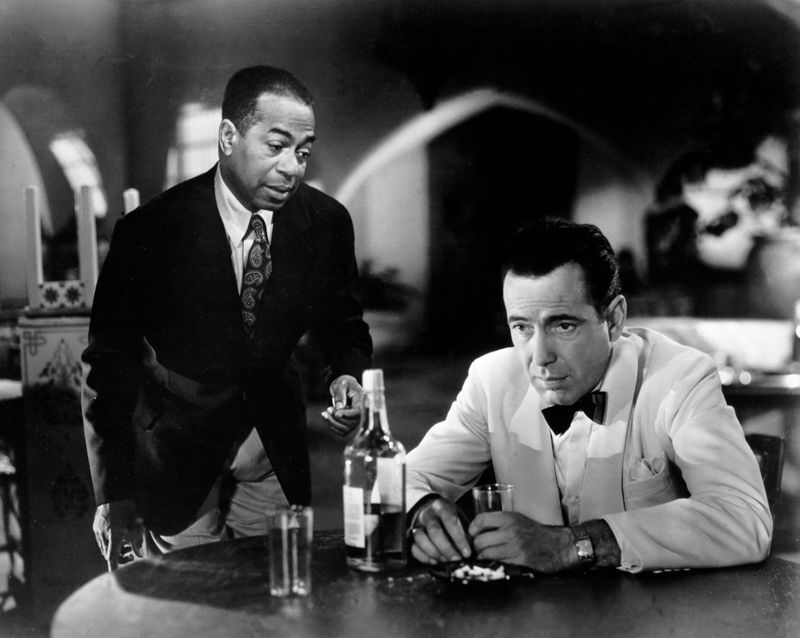
It opens like a history lesson, but feels like a heartbeat. The narration sets the stage for war-torn Europe, refugees fleeing, and hope flickering like a candle. Then the camera glides through Rick’s Café, and the story suddenly feels alive.
You’re immediately swept into the swirl of accents, money, and desperation. The clinking glasses, smoky air, and piano music create a setting so immersive it feels timeless. This isn’t just a bar—it’s a crossroads of fate.
By the time we meet Rick, standing alone in shadow with that perfect Humphrey Bogart stare, you know you’re in for something special. The first ten minutes establish romance, politics, and tragedy—all with effortless cool.
27. The Grand Budapest Hotel (2014)
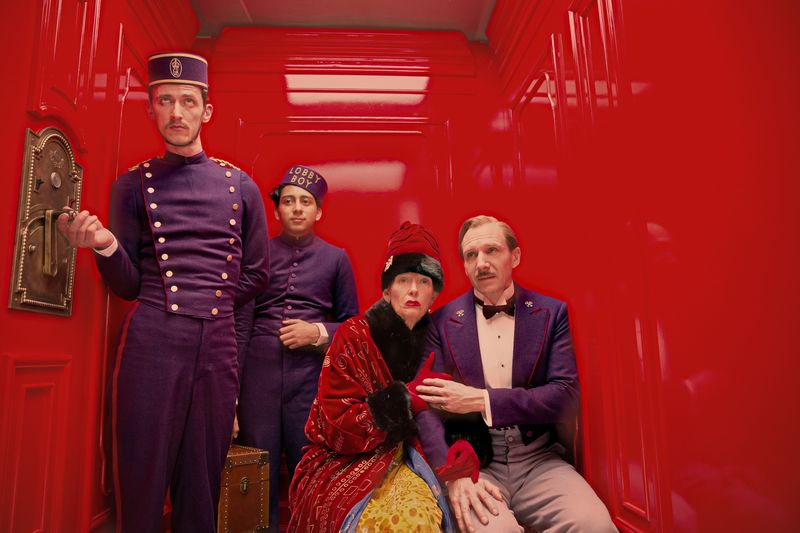
From the first frame, you know you’re in Wes Anderson’s world. Every color pops, every line is symmetrical, and every word feels like it was written in cursive. The story folds inside itself like a Russian doll, charmingly complex and beautifully absurd.
We meet the hotel in its faded glory, then flash back to its prime—a swirl of pinks, pastries, and impeccable manners. Anderson doesn’t explain his style; he immerses you in it, and you happily surrender.
Within ten minutes, you’ve met the eccentric Gustave H. and realized this film is a love letter to storytelling itself. It’s elegant, hilarious, and quietly nostalgic. You don’t just watch The Grand Budapest Hotel—you live in it for a while.
28. Black Swan (2010)
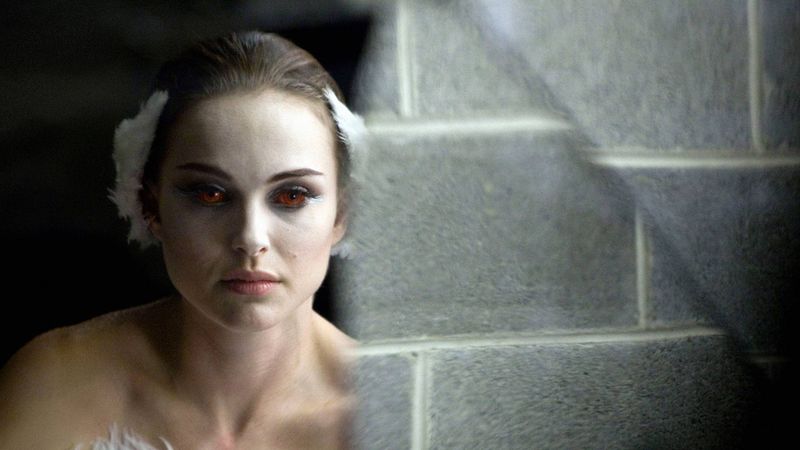
A dancer spins alone in a dark studio, her movements beautiful but obsessive. From the first shot, you can feel the pressure radiating off Natalie Portman’s Nina. Aronofsky wastes no time showing the cost of perfection.
The camera moves like it’s stalking her—intimate, invasive, and hypnotic. The colors are muted, the mirrors endless. Every frame hints that beauty and madness are about to collide.
Ten minutes in, you’re already uneasy. You know this won’t be a story about dance—it’s about control, identity, and destruction. The stage lights may shine, but there’s something terrifying lurking in the wings.
29. Her (2013)
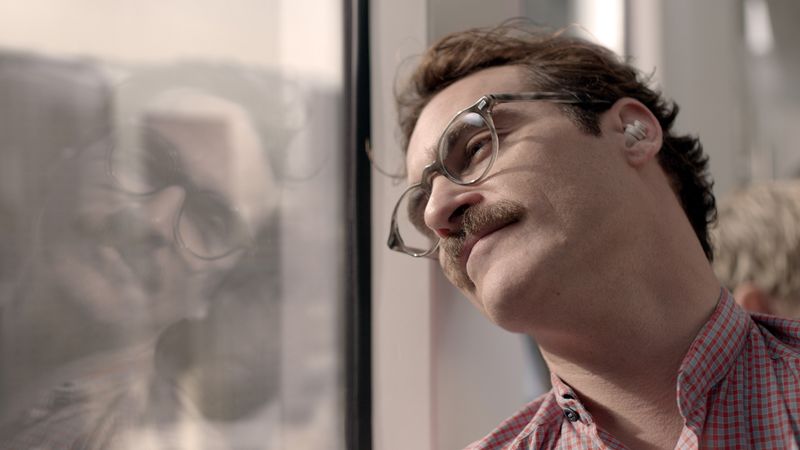
It begins with a lonely man writing love letters for other people. That idea alone tells you everything about the future Spike Jonze envisions—connected, yet heartbreakingly isolated.
The quiet cityscape, the soft colors, and Joaquin Phoenix’s gentle voice create a mood that’s tender but eerie. You’re drawn in not by technology, but by emotion—the very thing it’s trying to replace.
Ten minutes in, you understand this film isn’t science fiction; it’s a mirror. It’s about how human connection can feel both infinite and impossible. By the time Samantha speaks, you’re already half in love with the melancholy of it all.
30. The Lord of the Rings: The Fellowship of the Ring (2001)
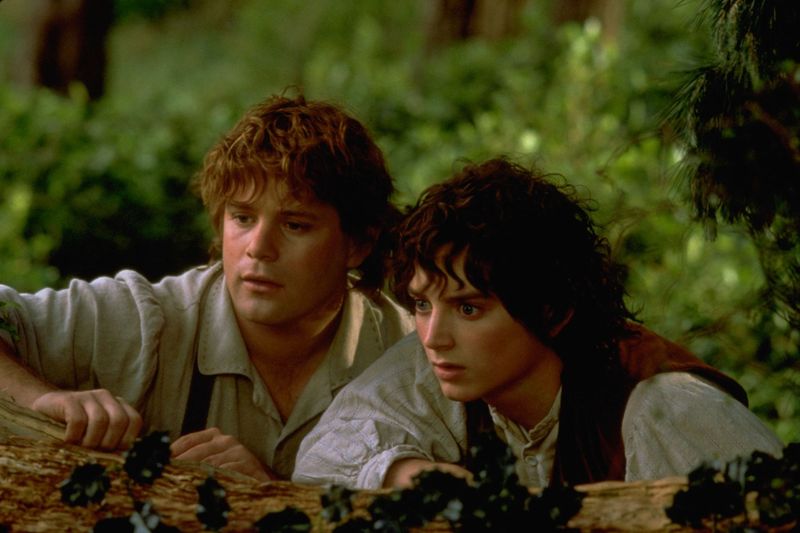
Before Frodo even appears, you’re already spellbound. Galadriel’s voice carries over sweeping landscapes and ancient battles, painting a history so rich it feels mythic.
The Ring’s origin story unfolds like scripture. The visuals, the music, the narration—they merge into something larger than cinema itself. You don’t just watch Middle-earth; you believe in it.
When the screen finally fades to quiet Shire life, it feels earned—like stepping from legend into reality. Ten minutes in, you already know this isn’t just a fantasy film. It’s an epic that will define a generation’s sense of wonder.

Comments
Loading…